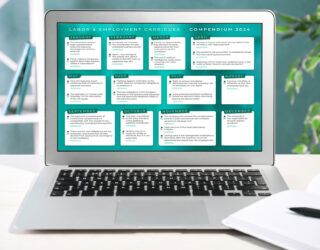
September 25 is the sixth anniversary of the approval of the Sustainable Development Goals (SDG) by the United Nations Organization (UNO). Objectives such as gender equality and equal pay for the same work, as well as theprotection of labor rights, are among the UNO’s priorities from a labor perspective.
In recent years, the business world has undergone unprecedented transformations resulting from technology, connectivity, innovation and digitalization, while also becoming more aware of the importance in such progress of environmental, social and governance criteria (ESG), which have been considered by the UNO for some time.
In September 2015, the UNO General Assembly passed the 2030 Agenda for Sustainable Development, a plan of action intended to eradicate poverty, protect the planet and ensure prosperity for all people, in addition to strengthening universal peace and justice.
Designed to govern worldwide development programs over the next fifteen years, the Agenda is structured into 17 goals and 169 targets covering economic, social and environmental issues, which replaced the so-called Millennium Development Goals (MDG) established by the UNO for 2000 to 2015.
What SDGs should be applied in a labor environment?
In a labor environment, the rights highlighted are to reach gender equality (SDG 5) and promote decent work, guaranteeing equal pay for work of equal value and the protection of labor and social rights (SDG 8).
The legislative activity deployed in Spain in recent years in order to promote real and effective equality between men and women has been intense. Nevertheless, the 2021 Progress Report published by the Ministry of Social Rights and the 2030 Agenda claims that the gender gap is still one of the main social and economic problems facing the country and places us further away from achieving SDG 5.
In relation to SDG 8, certain social reforms have also been carried out, such as the increase in the Minimum Wage (MW), approval of the Minimum Vital Income (MVI) and the regulation of new forms of work, such as distance working and work in digital environments.
However, many of the challenges we have to face are still ahead if we want to make the 2030 Agenda a reality and achieve quality, full and stable employment, with equal opportunity for all.
Only time will tell if we are capable of successfully reaching these sustainable goals.






